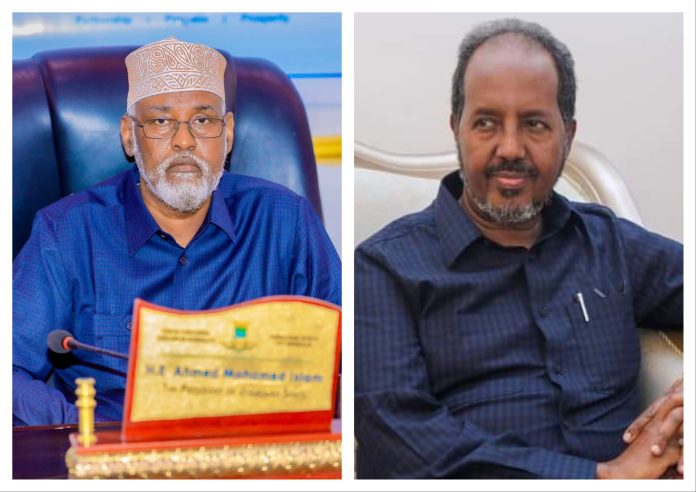Facebook Twitter (X) Instagram Somali Magazine - People's Magazine
The Somali Federal Government has officially rejected the ongoing leadership elections in Jubaland, accusing the region’s administration of manipulating the process to consolidate power. The elections, held in Kismayo, resulted in the re-election of President Ahmed Madobe’s close allies to key parliamentary positions. Madobe himself is expected to retain the presidency in the upcoming November 25 vote.
Minister of Petroleum and Mineral Resources, Abdirizak Omar Mohamed, dismissed the elections as a “theatrical project.” “The Federal Government will not recognize the outcome of this process, which undermines inclusive governance and Somalia’s democratic progress,” Mohamed stated.
Push for Electoral Reforms
The Somali Federal Government has criticized Jubaland’s electoral framework as unconstitutional. Prime Minister Hamza Abdi Barre argued that Jubaland’s actions contradict the National Consultative Council’s (NCC) agreements, which aim to establish a unified, one-person-one-vote electoral system nationwide. Jubaland, however, has rejected these reforms, asserting its constitutional autonomy to govern its electoral processes.
Rising Tensions Between Mogadishu and Jubaland
The relationship between the Federal Government and Jubaland has grown increasingly strained. Mogadishu accuses Madobe’s administration of sidelining opposition figures, ignoring calls for transparency, and conducting elections without broader consultation. Jubaland’s strategic location along the Kenyan border further underscores the region’s importance in national stability and counter-terrorism efforts.
International Calls for Dialogue
International partners, including the United Nations and African Union, have called for immediate dialogue to address the growing rift. In a joint statement, they urged Jubaland to rejoin the NCC to ensure Somalia’s federal system remains cohesive and democratic.
Ahmed Madobe’s Leadership Sparks Debate
Ahmed Madobe has led Jubaland since 2013 and remains a polarizing figure in Somali politics. Supporters credit him with stabilizing the region and combating Al-Shabaab insurgents. Critics, however, accuse him of perpetuating division and undermining Somalia’s federal system.
As Jubaland prepares for its presidential vote, analysts warn that Madobe’s likely re-election may deepen the rift with Mogadishu, complicating efforts to unify Somalia’s federal member states under a cohesive governance framework.

